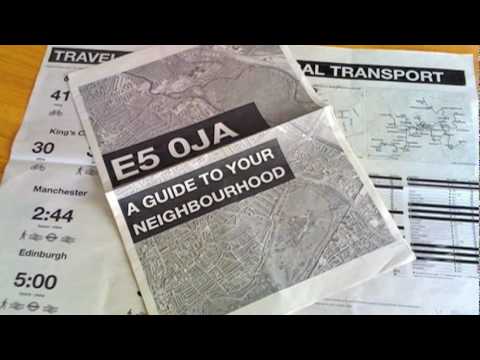Tim Berners-Lee, credited with creating the World Wide Web, discusses the increasing uses of Open Data for communities, professionals, non-profit and governments. The Day Open Data went World Wide.
Now what caught my attention in this talk was when Berners-Lee mentioned the Zanesville, Ohio case (2:08 minutes in), where county commissioners found that the installation of running water service was red lined based on ethnicity and income of neighborhoods. I remember hearing and/or reading this story, but I had no idea that the attorney for the black/bi-racial residents used a mash-up map of the ethnically segregated neighborhoods and the public water system to illustrate the discriminatory practices.
ZANESVILLE, Ohio — In most black and biracial households perched atop the catacomb of abandoned mine shafts beneath Coal Run Road, water is a precious commodity imported by truck and dumped into cisterns.
Meanwhile, nearly all of the whites who live in the vicinity need only flick a faucet to produce an endless flow, courtesy of the waterlines that feed their homes.
The disparity is the result of “unlawful discriminatory practice,” the Ohio Civil Rights Commission has ruled.
Blacks do not have public water service because of racial discrimination by the city of Zanesville, Muskingum County commissioners, Washington Township trustees and the East Muskingum Water Authority, the commission found in its June 12 ruling.
[…]“Prejudice is alive and well,” said Jim Hill.
Like others, he plunks quarters into a pump at the city water-treatment plant to fill the truck-mounted 550-gallon tank that feeds the cistern at the home he shares with his mother.
“Water is not a luxury, it’s a necessity,” said the 48-year-old Hill, who is disabled. “I think it is very cold-hearted of the people in power to deny these people water. I can’t believe people can act that way these days.”
Kathleen Hill, 89, who has lived in her bright yellow house since 1967, said of her son: “I’d be in big trouble without him to fetch the water.”
Waterlines serve the homes of 30 of the 34 white families who live along Coal Run Road, Langan Lane and Russell, Wallwork and Thomas streets.
Meanwhile, 23 of the 27 nonwhite households on the same streets must haul water, arrange delivery or pump it from wells prone to sulfur contamination from coal-mining residue.
County and township officials deny the charge of racism as well as responsibility for the lack of water service to black homes.
The county is in the process of taking over the East Muskingum Water Authority. The city serves some areas outside its borders
Data is powerful.

